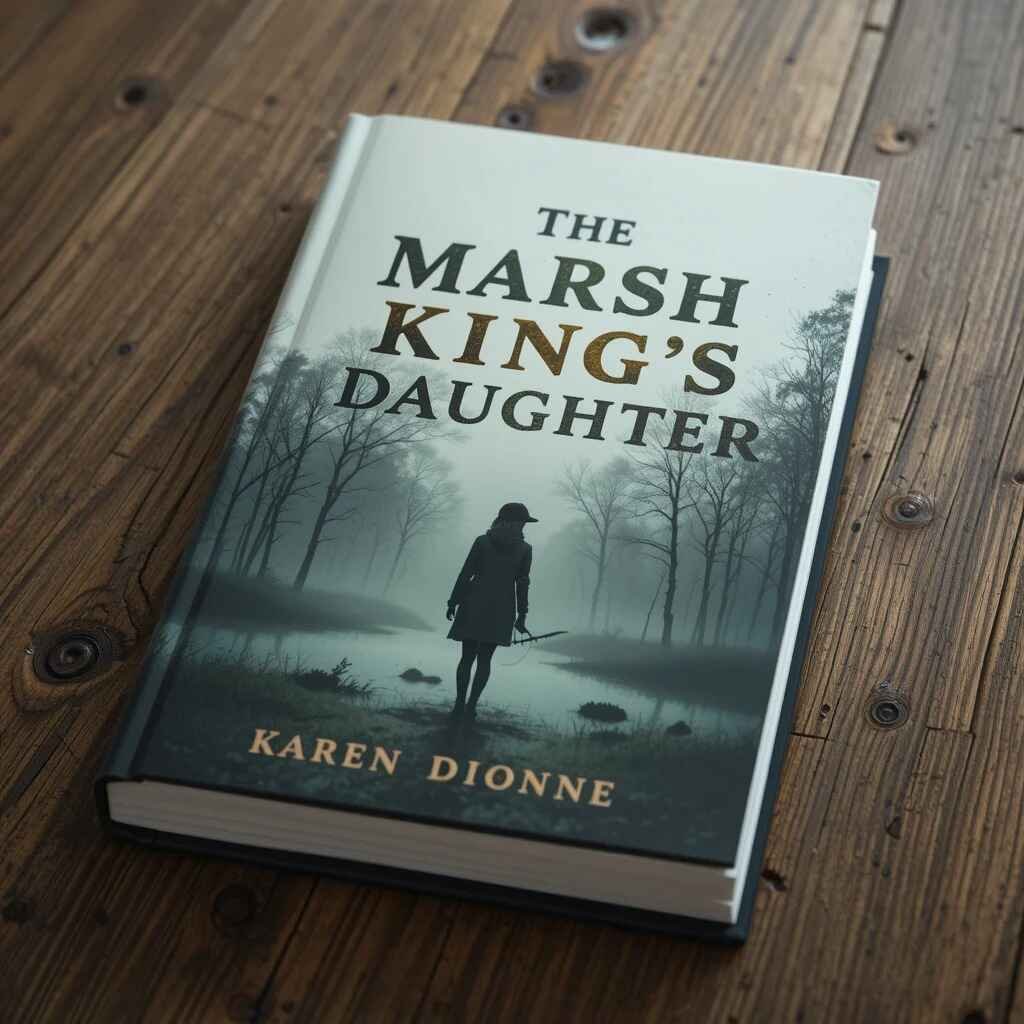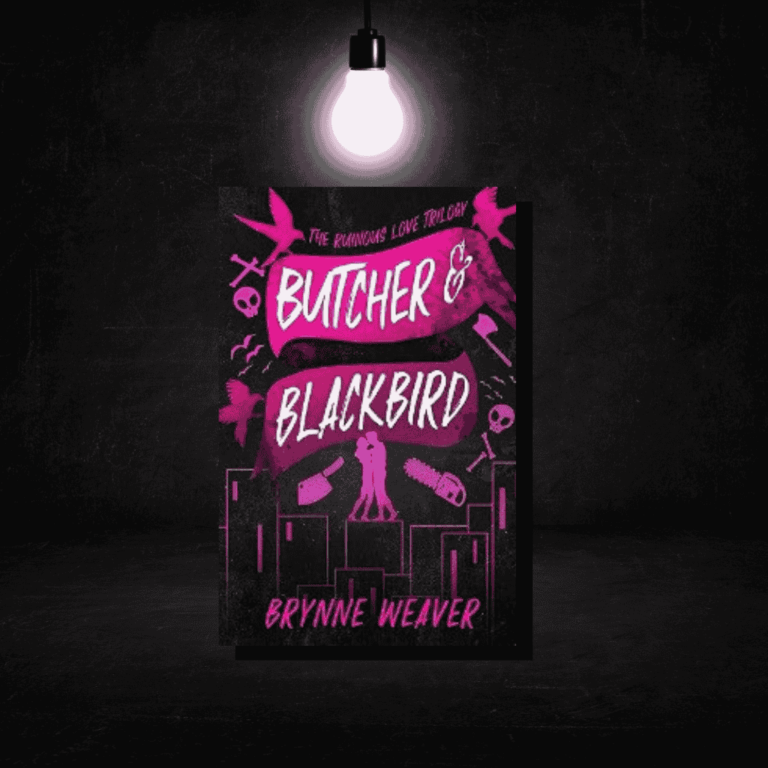Survival and Secrets: The Marsh King’s Daughter Review
If you’re a reader who enjoys suspenseful thrillers with a strong survival theme, The Marsh King’s Daughter offers an engaging experience. The novel’s setting in Michigan’s Upper Peninsula immerses you in a harsh, wild environment, while the complex relationship between Helena and her father adds emotional depth to the plot. However, if you’re seeking a deeper psychological exploration of characters, you may find the focus on survival and outdoor adventure a bit limiting. The book excels in creating tension and suspense, but the psychological complexity you might expect from such a dramatic setup isn’t fully realized. For those interested in gripping tales of survival with an atmospheric backdrop, Wilderness Watchers in the Marsh King’s Family, this book will definitely hold your attention.

Helena’s Unusual Upbringing
Helena Pelletier grew up in a remote cabin deep in the marshlands of Michigan’s Upper Peninsula, a place so isolated that even basic comforts like electricity, heat, and running water were a distant dream. Her life, though filled with fishing, tracking, and hunting, was anything but typical. Raised by her father, a dangerous criminal and notorious murderer, Helena’s world was shaped by survival and isolation. Her mother, kidnapped at the age of 14 by this man, gave birth to Helena in captivity. Despite the harsh conditions and her father’s brutal behavior, Helena developed a deep bond with him, learning skills that would later become crucial. As she grew older, though, the truth about her father’s savage nature slowly began to surface, and Helena was forced to confront the reality of her traumatic upbringing.
A Deadly Pursuit
Years later, Helena’s life took an unexpected turn when she put her father behind bars. But the story didn’t end there. Jacob Holbrook, the man known as the Marsh King, managed to escape from prison, killing two guards along the way. Now on the run, he vanished into the very marshland that Helena knew so well. Helena, estranged from him, is forced to face the consequences of her past. She knows that only she possesses the skills set to find him, as she was the one trained by her father himself. As a survivalist, the Marsh King has spent years hiding in the very terrain Helena was taught to navigate. The manhunt initiated by the police is unlikely to succeed—Helena knows it’s a race against time, and only she has the knowledge to stop him before his violent spree causes more havoc.
Helena’s Complex Upbringing
Helena’s childhood was anything but ordinary. Raised by a kidnapper in brutal captivity, she lived a life that, to anyone looking in, seemed unimaginable. For much of her life, she was unaware of the captivity she was living under, thinking her father, Jacob, was just another strict parent. In the harsh isolation of the marsh, Helena learned skills like hunting, tracking, and surviving in ways that shaped her entire existence. Her upbringing was a combination of father’s rules, survival in the wild, and an absence of basic social customs like small talk and table manners. For her, these norms didn’t exist, and as an adult, she realizes how complicated this has made her relationship with the rest of the world.
A Novel of Suspense and Survival
In THE MARSH KING’S DAUGHTER, Karen Dionne masterfully blends suspense with deep, emotional insight into the effects of trauma. The novel moves back and forth between Helena’s past, growing up in the marsh, and her present-day quest to track down her father, who held her and her mother captive. As Helena reflects on the days when she was unaware of her real situation, she grapples with how it shaped her psyche. The alternating style of narrative allows readers to see the disturbing and psychological toll of growing up in captivity. The novel’s flashbacks offer a compelling look into her relationship with her father, a sadistic man who instilled in her an unusual sense of survival. The contrast between her past and present day offers a deep, unsettling glimpse into Helena’s struggle to integrate into modern American culture and find peace with her history.
Narrative and Storytelling
The Marsh King’s Daughter is a compelling story that showcases Karen Dionne’s writing ability in crafting an engaging narrative. Helena, the main character, presents a unique and complex figure. She comes across as cold yet immensely interesting. The novel is narrated through Helena’s worldview, which limits the reader’s access to her empathy and offers a glimpse into a childhood filled with trauma and brutal experiences. Even though Helena, now an adult, recognizes that her upbringing was wrong, her frame of reference is skewed by her years spent under the control of her father’s thumb. As a result, she grew up as a daddy’s girl, seeking love and approval from a man who was a murderer and kidnapper, having destroyed her mother’s life. Throughout the story, Dionne drops subtle, thought-provoking hints about Helena’s skewed perception of her father, who she still sees as great, smart, strong, and invincible. These flashbacks offer an intimate look at Helena’s childhood, where cruel, hyper-controlling behaviors from her father were recounted with the same casualness as everyday activities. It’s a powerful storytelling device, drawing the reader into a world where repulsive behaviors are treated with surprising nonchalance, making it even more unsettling when you realize just how messed up these actions really were. Dionne’s approach to storytelling keeps you engaged, constantly inviting you to question the nature of Helena’s upbringing and how it shaped her perception of the world.
Setting and Atmosphere
The setting in The Marsh King’s Daughter is crucial to its storytelling, with Dionne recreating a strong sense of place that brings the Upper Peninsula of Michigan to life. In an interview, Dionne shared how her personal connection to this locale helped her depict the wilderness so vividly. The boggy marsh and isolation of the region create the perfect backdrop for Helena’s life, allowing the reader to see how she uses her survival skills to navigate both the wilderness and her own troubled past. Through hunting, tracking, and fishing, Helena learns to survive in a place where nature and human struggles intertwine. The final showdown between Helena and her father is a direct result of these survival skills, adding to the novel’s sense of tension. Helena’s life, shaped by isolation and survival, mirrors the dark fable of Helga, the daughter of a wicked Marsh King in Hans Christian Andersen’s tale. The novel subtly incorporates this fable to reflect the broader themes of captivity and escape. This short fairy tale parallels Helena’s life in many ways, with the story of a fairy princess from Egypt and the Marsh King’s cruel world. Each chapter of the novel begins with excerpts from this dark fable, drawing in fans of fairy tales and creating a layered, textured reading experience. The detailed description of the region, with its harsh wilderness, isolation, and boggy marsh, adds depth to the story and emphasizes the intensity of Helena’s experiences. The transport of the reader into this remote, wild location adds another element of immersion to the novel, making The Marsh King’s Daughter a truly compelling and memorable read.
A Complex Web of Family and Survival
The Marsh King’s Daughter explores the chilling dynamics within a dysfunctional family, with Helena caught between her father’s brutal control and her mother’s silence. Though the plot introduces Helena’s strained relationship with her mother, it doesn’t fully delve into the emotional complexity of their bond. The mother feels more like a tragic set dressing, overshadowed by Jacob’s presence, making the story’s central conflict feel incomplete. Despite the complex, psychological nature of Helena’s relationship with her father, there is a missed opportunity for a deeper exploration of their psychological intricacies, especially concerning Helena’s own role as a mother.
The Wilderness, Survival, and Missed Psychological Depth
The marsh, the harsh environment where Helena grows up, plays a pivotal role in shaping her survival skills, though the story places greater emphasis on her outdoor adventures rather than exploring the deeper psychological complexities of her upbringing. Jacob’s teachings about survival give Helena a set of tools to navigate the world, but the complex emotions and psychological turmoil that could have enriched the narrative are not fully explored. Though Karen Dionne weaves a fairy tale element into the story, which brings an interesting layer, it doesn’t quite add the psychological depth that the book could have benefited from. For readers seeking more character development and a psychological thriller, The Marsh King’s Daughter offers strong setting and survival themes but may leave some wanting more.
While The Marsh King’s Daughter offers thrilling suspense and a gripping atmosphere, the psychological depth of its characters could have made it an even more powerful read. If you’re a fan of survival tales with a complex setting, this book is definitely worth exploring.






